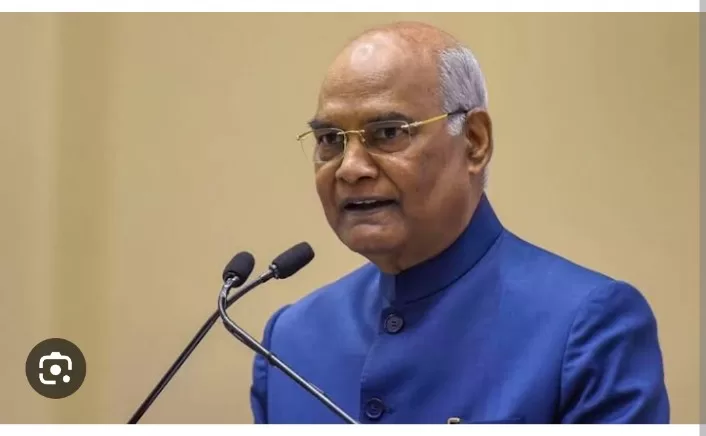Senior officials of the Union Law Ministry convened a preparatory session on Sunday for former President Ram Nath Kovind, who chairs the high-level committee tasked with exploring the feasibility of simultaneous elections for the Lok Sabha, state assemblies, and local bodies.
The government officially constituted the eight-member committee on Saturday.
Insiders familiar with the matter revealed that Law Secretary Niten Chandra, Legislative Secretary Reeta Vasishta, and others engaged in discussions with Kovind to ascertain his approach to the committee’s mandate.
Chandra, in addition to his role as Law Secretary, also serves as the secretary for the high-level committee. Vasishta’s department handles election-related matters, the Representation of the People Act, and related regulations.
When questioned about the government’s use of a “resolution” (referred to as “sankalp” in Hindi) to announce the committee members, an official clarified that this practice follows established precedents.
For instance, the Indrajit Gupta Committee on state funding of elections was established through a resolution. Similarly, the law commission is reconstituted every three years via a resolution passed by the Union Cabinet.
The resolution issued on Saturday highlights that elections to the Lok Sabha and Legislative Assemblies were predominantly held simultaneously from 1951-52 to 1967. Subsequently, this synchronicity broke, and elections have occurred nearly every year and often at different times, incurring substantial expenses for the government and other stakeholders.
Furthermore, asynchronous elections lead to the deployment of security forces and electoral officers away from their primary duties for extended durations, the resolution contends.
In the “national interest,” the resolution deems it “desirable” to conduct simultaneous elections throughout the country. Frequent polls disrupt developmental projects due to the protracted application of the Model Code of Conduct, it added.
The resolution cites reports from the law commission and parliamentary committees that have endorsed the concept of simultaneous elections for the Lok Sabha and state assemblies.
Consequently, the government has established a high-level committee to investigate the issue and propose recommendations for implementing simultaneous elections across the nation.
According to former Union Law Secretary P K Malhotra, government executive decisions are generally communicated to the public through notifications, orders, or resolutions.
Notifications are typically issued in compliance with statutory powers and are routinely published in the official gazette. Orders, conversely, often prescribe obligations, such as government appointments or specific mandatory directives.
Resolutions are generally used when the government makes policy decisions, not necessarily based on statutory authority, but to convey its policy determinations to the wider public regarding certain proposals under consideration.







